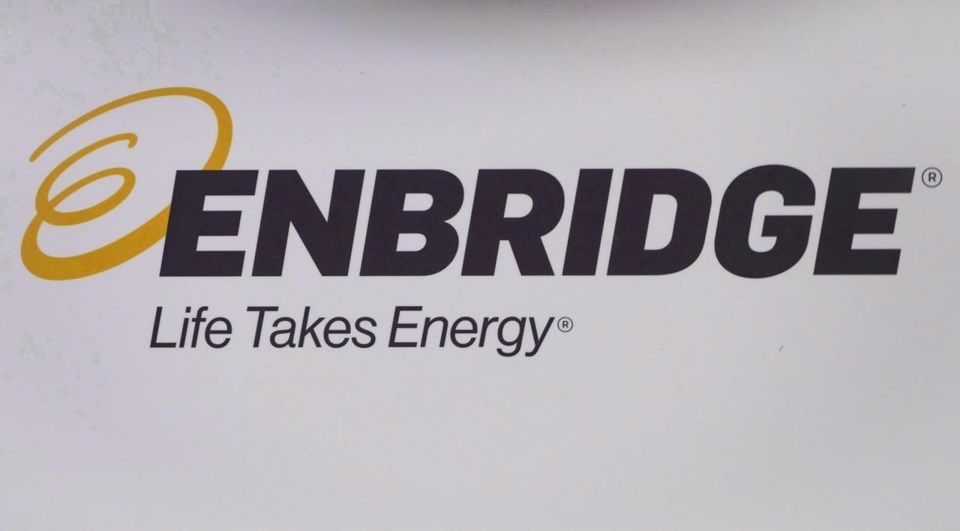CALGARY — Enbridge Inc. is hoping to see more incentives for carbon capture and storage announced in the upcoming federal budget, the CEO of the energy infrastructure giant said Wednesday.
Following the company's annual Investor Day event, Greg Ebel told reporters that the U.S. is currently a more attractive place for carbon capture investment. That country's sweeping Inflation Reduction Act, passed by President Joe Biden last year, offers incentives on both the capital cost side and for ongoing operating costs, Ebel said.
"Whether folks like it or not, you’re really competing against the IRA. And they’ve really put a lot of carrots on the table in terms of promoting people to invest there," Ebel said, adding that Canada's oil and gas sector has been urging Ottawa to increase its own support for the emissions-reduction technology in order to spur investment in the space.
"Obviously, some more incentive (in Canada) to reduce capital costs and operating costs and therefore the risks of these projects? I think that’s going to be very well received by the industry.”
Canada's energy industry has identified carbon capture and storage as key to its plan to reduce greenhouse gas emissions. Companies have proposed approximately 25 different projects aiming to capture carbon from Alberta's oil and gas sector — one of which is Enbridge's own Open Access Wabamun Carbon Hub, to be located northwest of Edmonton.
However, Enbridge, like most companies, hasn't committed to going ahead with this project. In spite of its potential, carbon capture deployment in Canada remains limited, with just seven projects currently operating in the entire country.
Environmentalists have criticized the energy sector for not moving fast enough, especially given the record profits many companies earned last year due to spiking oil prices.
But Ebel said while he's confident carbon capture projects will be built, getting all of the pieces in place takes time.
"You see how long it takes to build a pipeline project or just about any kind of infrastructure project these days – I don’t think CCS is any different," he said.
Last year, the Canadian federal government announced the creation of an investment tax credit aimed at spurring development of carbon capture projects.
But a BMO report published last August said the Inflation Reduction Act south of the border ensures roughly two-thirds of carbon capture project costs (capital and operating costs) are covered by the U.S. government.
By comparison, the report said, the investor tax credit announced by the Canadian federal government in 2022 would cover less than 15 per cent of the total costs by 2050 of the carbon capture project that has been proposed by the Pathways Alliance, a consortium of Canadian oilsands companies.
This report by The Canadian Press was first published March 1, 2023.
Companies in this story: (TSX:ENB)
Amanda Stephenson, The Canadian Press



